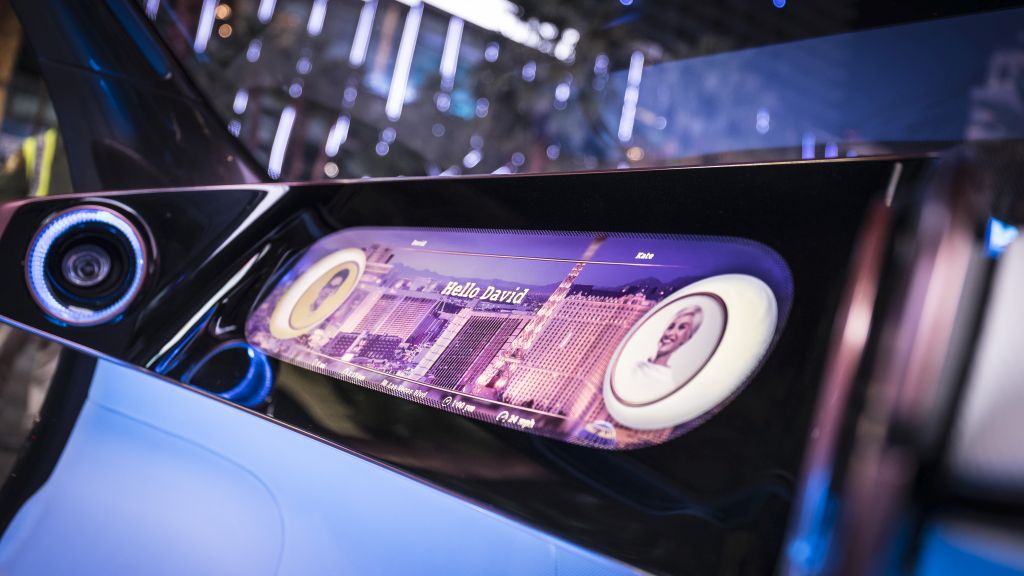Voice assistants in cars: How helpful are they really?
By DPA | 31 December 2020
BERLIN: With just a couple of words you can turn up the volume of the music. Or skip to the next song with a simple command. And one sentence is enough to get your satellite navigation to take you where you want to go.
Voice control systems promise to make driving easier and safer.
Apple devices use the Siri voice assistant, while Android uses Google Assistant. The latter is also part of Android Auto, designed for use in vehicles. And via the Echo Auto Bluetooth adapter, Amazon connects its Alexa voice assistant to smartphones in cars.
All assistants require an active Internet connection. Siri and Echo Auto must be permanently online, while Google Assistant continues to work even there are gaps in coverage.
But can you really do that much with a voice assistant in your car?
Mobility tech analyst Nathalie Teer from Germany's Bitkom digital association thinks so.
"They're great because the driver is less distracted than with manual operation, and they're also more convenient." You can control apps by voice without looking at the display or touching any buttons.
All you need is a smartphone in your car, preferably connected to the car's speakers via Bluetooth or cable," explains Teer. She adds that a good mobile phone holder, which should not be mounted too far away from the driver because of possible noise interference, and the correct voice control settings for are also crucial.
Newer vehicles often offer greater integration of smartphones in the car with Apple CarPlay or Android Auto. If you open certain apps on your phone, they can be seen and controlled on the car display, which makes operating them even easier. "The assistants are helpful and recommended for all car drivers," says Nathalie Teer. In addition, they're quick, easy and cheap to set up.
If voice commands are not recognised immediately, for example because of traffic and other noises, a second attempt often helps, but sometimes stopping the car and parking is the only option. On no account should you get distracted by problems operating the assistants, Teer warns. That would be counterproductive, as the assistants are there to help you concentrate better on the traffic.
Before committing to a system, it's worth trying out different ones, depending on your own smartphone and its operating system, advises car electronics specialist Michael Zeitler. "It's good if the voice control can be activated with a button." Otherwise it could be opened by accident.
The smartphone should be linked to the car radio so that the driver can communicate with the device using the hands-free system, for example. Alternatively, "drivers can also operate the voice assistant with a good quality headset," says Zeitler.
Whether streaming music, checking your calendar, making phone calls, satnav or notes: voice assistants in cars are becoming more and more popular.
In a 2019 study conducted by the Capgemini Research Institute, almost half (49 percent) of those surveyed said they already use a voice assistant in their car, of which over three-quarters (77 percent) use it to play music.
For Markus Winkler, automotive expert at the management consultancy Capgemini, the decisive factor when it comes to voice assistants is the extent to which the system is integrated into the vehicle and its digital ecosystem. "When purchasing a car, speech assistants initially play a secondary role, which only becomes evident when it using it on a daily basis," he says.
Drivers who already control devices by speech at home often use such assistants, says Winkler. "Depending on the manufacturer, the integration of speech assistants is still in its infancy." Some can only be connected using a smartphone, while others already offer deeply integrated systems that can be used to operate other vehicle features.
"In the future, voice assistants will be more intelligent and will be able to perform more tasks," says Winkler. "To do this, the systems must be linked to the vehicle." Many people also expect the same voice assistant in the car as they have on their smartphone.
Volvo's electric brand Polestar, for example, relies on Android Auto, with which many functions can be operated by voice. The Fiat-Chrysler automotive group with its brands like Fiat, Ferrari, Jeep, Chrysler and Dodge also relies on Android Auto.
Amazon Alexa is integrated in newer BMW vehicles, as well as in cars from Seat. Mercedes vehicles can perform some tasks using their own system MBUX with "Hey Mercedes". Mbux is available as an option, and in Mercedes' home market, it costs more than €1,000 (around RM5,000) extra for this feature in the A-class.
Tags
Autos News
Reviews

First drive with the 2025 Hyundai Tuscon and Santa Fe: Seoul...

5.8
Kymco AK550 Premium: Smart easy rider

BYD Seal 6 Premium: Sweet deal, generous kit, sensible prici...

8.7
Mazda CX-80 2.5G PHEV AWD High Plus: Upmarket upgrade

Proton X50 Flagship: Tuned for success

6.6
Triumph Trident 660: Beautifully balanced package

8.4
Mercedes-AMG GLA 35 4Matic: Never a dull moment

Lamborghini Urus SE: Ultimate control
Videos

Free & Easy Media Test: Latest Proton X50 Flagship to Kuanta...

Zeekr Space Sunway City Video

Honda Civic Type R Ultimate Edition: Last 40 Units for Europ...
